Search Results
Showing results 1 to 20 of 74
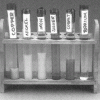
Metal Reactions
Source Institutions
This is written as a static display, but can easily be adapted to a hands-on experiment for learners to conduct.
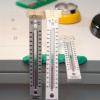
Hot Equator, Cold Poles
Source Institutions
In this activity, learners use multiple thermometers, placed at different angles, and a lamp to investigate why some places on Earth's surface are much hotter than others.
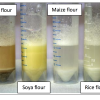
Wheat Evolution: Sedimentation Testing
Source Institutions
In this activity (Page 30 of PDF), learners investigate the evolution of wheat by conducting sedimentation tests on different flours.
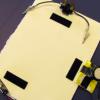
Building a Basic Series Circuit
Source Institutions
This activity was designed for blind learners, but all types of learners can use it to build and examine a basic electrical circuit.
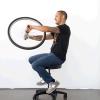
Bicycle-Wheel Gyro
Source Institutions
In this activity, a spinning bicycle wheel resists efforts to tilt it and point the axle in a new direction.
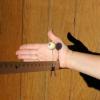
Why Do Eclipses Happen?
Source Institutions
This fun and simple hands-on astronomy activity lets learners create 3D models of the Earth, Moon and Sun to demonstrate solar and lunar eclipses.
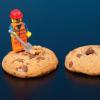
Cookie Mining
Source Institutions
In this activity, learners explore the economics of coal mining as you they use fake money to purchase mining tools, attempt to carefully mine their cookies, sell their chocolate chip ore, and try to
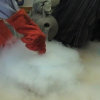
Nano Ice Cream
Source Institutions
In this activity/demo, learners discover how liquid nitrogen cools a creamy mixture at such a rapid rate that it precipitates super fine grained (nano) ice cream.
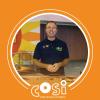
Build an Electromagnet
Source Institutions
In this activity, learners will build a simple electromagnet. They will test variables that would make the electromagnet stronger.
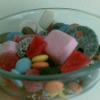
Candy Dish Natural Selection
Source Institutions
In this yummy biology activity (page 3 of the PDF), learners participate in a demonstration of natural selection.
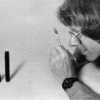
Diffraction
Source Institutions
In this optics activity, demonstrate diffraction using a candle or a small bright flashlight bulb and a slide made with two pencils.

Safer with Science-Masks
Source Institutions
Why should we wear masks? Do masks work? Do some masks work better than others? Learners find out in this activity.

3-2-1 POP!
Source Institutions
In this physics activity, learners build their own rockets out of film canisters and construction paper.
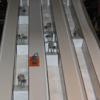
Echo Base Bobsleds
Source Institutions
The goal of this activity is to build a miniature bobsled that is either the fastest or the slowest. Learners use recycled materials to design, build, and test their bobsled on a bobsled track.
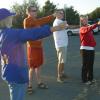
Does the Moon Rotate?
Source Institutions
This fun and simple hands-on astronomy activity lets learners make 3-dimensional models of the Earth and Moon.
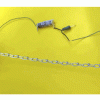
Stretch the Chain and See the Light
Source Institutions
In this activity, learners use their strength to light a light bulb. A chain made from paper clips is placed in series with a battery and flashlight bulb.
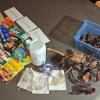
Got Seaweed?
Source Institutions
In this activity, learners examine the properties of different seaweeds, investigate what happens when powdered seaweed (alginate) is added to water, and learn about food products made with seaweed.
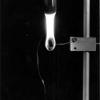
Burn a Peanut
Source Institutions
In this activity, learners burn a peanut, which produces a flame that can be used to boil away water and count the calories contained in the peanut.
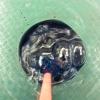
Breathing Blue
Source Institutions
In this activity, learners test exhaled breath for carbon dioxide and learn how to use an indicator as a simple way to measure pH.
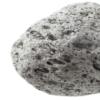
A Crayon Rock Cycle - Igneous
Source Institutions
This is part 3 of the three-part "Crayon Rock Cycle" activity. Before starting this section, learners must have completed part 1: sedimentary rock and part 2: metamorphic rocks.
